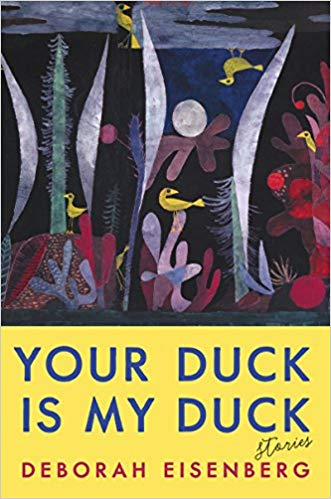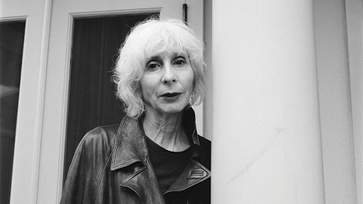YOUR DUCK IS MY DUCK
By Deborah Eisenberg
Deborah Eisenberg
With wit and ease, Deborah Eisenberg explores identity in her short fiction collection, Your Duck Is My Duck. All of the characters featured in these short stories have different personalities and interests but one thing rings true, perspective is everything. Eisenberg alternates between providing her insights through the use of dialogue and the speaker’s thoughts. Her realist portrayal of human existence is a work of literary art. Most of the characters featured in this collection are young adults contemplating their future or older adults reflecting on their past, as Eisenberg shows readers how we are the creators of our own personal disasters.
|
The First short story, which happens to also be the name of the book, makes Eisenberg’s observations about humanity explicitly clear; we are self-destructive individuals who watch idly as the world around us crashes and burns, then we continue with our lives as if the fire and damage never happened. This is followed by “Taj Mahal”, a story that questions how we see our past and notes our influence on those around us. Eisenberg explores perspective and memory as she brings together a group of individuals who remember the life of a loved one and friend very differently. One can’t help but think about their own past and wonder what’s real and what’s our imagination come to life.
Eisenberg’s stories and characters reflect the biting reality of human existence. Her short story, “Cross Off And Move On” demonstrates the toll of emotional trauma and how the people we are surrounded by as children shape us into the person we are as adults. Rather than calling the speaker’s perspective into question, like we do with “Taj Mahal”; readers are forced to identify how our actions affect others. Eisenberg continues to provide a mirror to society in her short stories, “Merge”, “The Third Tower”, and “Recalculating as she adds depictions of privilege and the turmoil of the human mind. Immensely skilled at providing descriptions so in-depth that you feel your characters as much as you see their truth, Eisenberg’s collection will undoubtedly be studied by young writers who seek to invoke honesty in their fiction. And I would expect nothing less from a MacArthur Foundation Fellow and award-winning writer, including the Faulkner Award for Fiction. |



